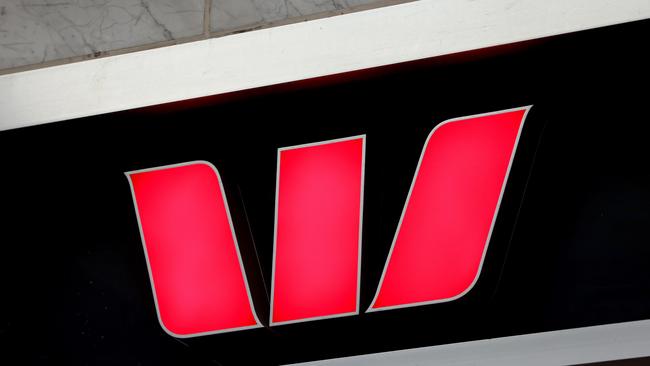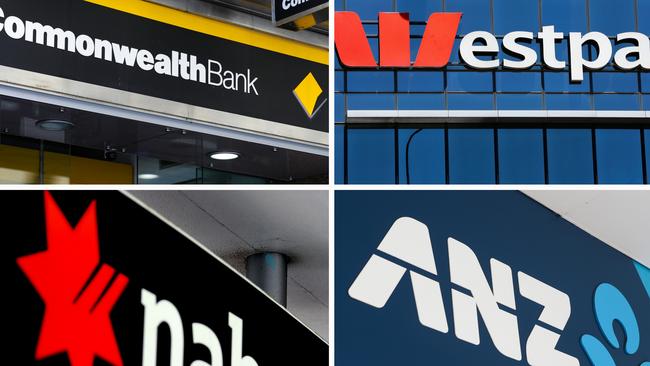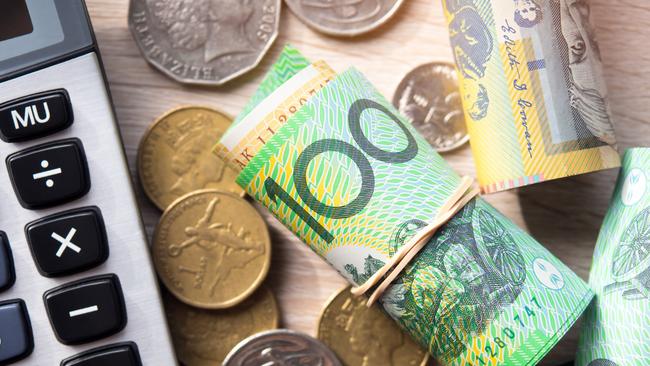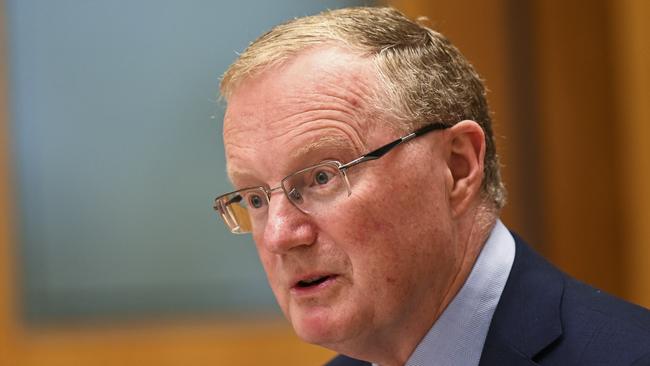Reserve Bank hands down interest rate decision, cash rate lifted .25 per cent
One of the big four banks has been quick to pass on the latest rise after the Reserve Bank handed down its interest rate decision.
Interest Rates
Don't miss out on the headlines from Interest Rates. Followed categories will be added to My News.
Westpac has become the first major lender to pass on the Reserve Bank’s latest interest rate rise.
“Following the RBA’s decision to increase the official cash rate, Westpac today announced a 0.25 per annum increase to our variable home loan interest rates, for new and existing home loans,” the bank said in a statement.
“These variable rate changes will come into effect from Tuesday 20 June 2023.”
But Westpac has made no mention on passing the rate increase on to any of its savings

“Westpac has been quick to announce hikes for home loan customers, but has left savers in the dark,” RateCity.com.au research director Sally Tindall said.
“Westpac savers should use this time to pressure their bank to pass this rate hike on in full.” She said customers should expect “a decent ongoing savings rate” of over five per cent.
“Anything less, and it could be time to break up with your bank,” she said.
Ms Tindall said home loan customers could also get a rate cut.
“Westpac might be turning its back on the hunt for new customers, but it is still keen to keep hold of existing ones,” she said.
“If you call your bank you could find they offer you a rate cut within the space of just one phone call,” she said.

The other major banks – Commonwealth, ANZ and NAB – smaller lenders are expected to follow suit over the next couple of days.
Millions of homeowners have been dealt a fresh blow to their hip pocket after the Reserve Bank hiked rates to an 11-year high, with a warning there could be more hikes on the way.
The central bank hiked the cash rate by 0.25 percentage points to 4.10 per cent – the highest level since April 2012 – when it met on Tuesday.
It means the average borrower with a $500,000 home loan before the RBA began its aggressive tightening cycle last May could now be paying $1,134, or 49 per cent, more a month.
Ms Tindall said the data considered by the board was a “mixed bag”.
“People might now be cutting back on discretionary spending, but the monthly inflation figures weren’t exactly the score update the RBA was hoping for,” Ms Tindall said.
She urged borrowers to make a plan now, ahead of any future increases.
“Call your bank and ask what your repayments would be if the cash rate gets to 4.35 per cent, and start planning out a new budget around these figures,” she said.
“If that budget doesn’t add up, start taking action now while you still have time on your side.”
In a statement, governor Philip Lowe indicated further interest rate rises could be required in the coming months.
“Some further tightening of monetary policy may be required to ensure that inflation returns to target in a reasonable time frame, but that will depend upon how the economy and inflation evolve,” he said.

Since May 2022, the RBA has aggressively raised rates from a record low 0.1 per cent in a bid to tame runaway inflation.
Monthly figures released by the ABS last week show the annual inflation rate jumped from 6.3 per cent to 6.8 per cent in April. The next set of quarterly data isn’t due until next month.
But inflation remains well above the bank’s target range of two to three per cent.
Dr Lowe said Tuesday’s rate hike would “provide greater confidence” that inflation will return to target “within a reasonable time frame”.
“Inflation in Australia has passed its peak, but at 7 per cent is still too high and it will be some time yet before it is back in the target range,” he said.
“The board remains resolute in its determination to return inflation to target and will do what is necessary to achieve that.”
CreditorWatch chief economist Anneke Thompson said it was clear inflation was not “falling fast enough for the RBA to be comfortable with”.
“While consumer demand is definitely dropping overall, non-mortgaged and non-renting households continue to spend up on services, particularly in the tourism, cafes and restaurants and health sectors, making inflation more sticky in these areas of the economy,” Ms Thompson said.
“It remains to be seen if further increases to the cash rate will make enough of a dent in services side inflation, given these consumers are not impacted by higher interest rates.”
Ahead of the meeting, economists were split as to which way the RBA would move. Financial markets had tipped the chance of an increase at around 33 per cent.
However, economists had flagged a decision from the independent wages umpire to lift the minimum award wage as a cause for concern for the RBA.

Proptrack senior economist Eleanor Creagh said the tight labour market, wages increases in the public sector and the Fair Work Commission‘s decision could potentially “fuel” inflation to remain elevated.
“The risk of a wage-price spiral is an ongoing concern for the central bank,” she said.
“This gave the RBA headroom to further raise the cash rate, reaffirming its commitment to overcome the challenge of high inflation and anchoring inflation expectations.”
In his statement, Dr Lowe noted while economic growth had slowed and conditions in the job market were easing, they remained tight.
“Firms report that labour shortages have eased, although job vacancies and advertisements are still at very high levels,” he said.
“The board remains alert to the risk that expectations of ongoing high inflation contribute to larger increases in both prices and wages, especially given the limited spare capacity in the economy and the still very low rate of unemployment.”
Finder’s head of consumer research Graham Cooke said the decision would come as a “shock” to many already struggling, according to the firm’s recent cost of living survey.
“Nearly 80 per cent Aussies are reducing their spending to cope with rising costs – the RBA’s latest hike is likely to push that closer to 100 per cent,” Mr Cooke said.
Originally published as Reserve Bank hands down interest rate decision, cash rate lifted .25 per cent


